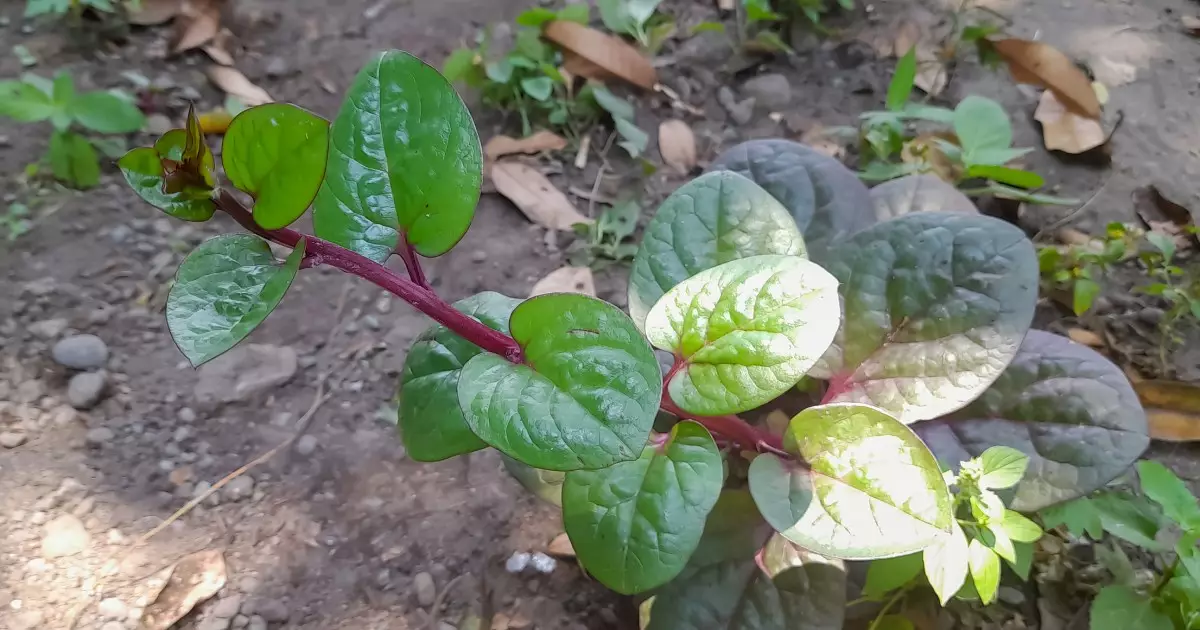For dog owners seeking to enrich their pets’ diets with natural foods, the question arises: Can dogs eat Basella alba? This leafy green, more commonly known as Malabar spinach, is gaining recognition not just for its culinary versatility among humans, but also for its potential health benefits for dogs. It might be a surprising consideration, but numerous studies indicate that Basella alba can be a beneficial addition to your furry friend’s menu.
Rich in a spectrum of vitamins and minerals, Basella alba is akin to a superfood that promotes holistic wellbeing in dogs. It embodies a plethora of essential nutrients such as vitamins E, C, A, B9, and K; each playing a pivotal role in maintaining a dog’s health. Vitamin E serves as a crucial antioxidant, supporting cellular health and the metabolism of fats within the body. Meanwhile, vitamin C is essential for bolstering the immune system, thereby helping your dog fend off infections more effectively.
Boosting Immunity and Promoting Growth
Vitamin A is known for its impressive benefits, particularly in enhancing muscle function, skin health, and coat luster. This vitamin plays an indispensable role in eye health as well, making it an all-around champion in nutrition. Additionally, vitamin B9, or folate, aids in cell growth, while vitamin K is crucial for blood clotting. This particular vitamin’s deficiency can lead to disastrous health consequences, including internal bleeding, especially in unfortunate cases where dogs consume rat poison.
The wealth of vitamins in Basella alba is impressive, but what truly elevates this leafy green is its contribution to digestive health. The plant is abundant in both soluble and insoluble fibers, which are essential for maintaining gut health and facilitating smoother digestion. A happy gut often translates to a healthy pup, which reinforces the argument for including Malabar spinach in your dog’s diet. Moreover, dogs often seem to enjoy the unique flavor profile of Basella alba, which might even appeal to their taste buds—something not every vegetable can boast.
Safe Preparation Practices for Your Pup
If you’re contemplating adding Basella alba to your dog’s diet, it is wise to consult with a veterinarian first. This consultation will ensure a well-informed approach, particularly if your dog has specific dietary needs or pre-existing health conditions. When selecting Basella alba, opt for organic varieties to guarantee minimal exposure to pesticides and maximize nutrient retention.
Raw Basella alba can be fed to dogs, but many experts recommend cooking the leaves to aid digestion. Cooking methods such as blanching or steaming make the vegetable easier to chew and digest. Interestingly, dogs do not process whole leaves as efficiently as humans, and pureeing cooked Basella alba may enhance its nutritional absorption. A fun and imaginative idea is to freeze small portions of pureed Basella alba mixed with water in an ice cube tray. These popsicles can serve as a refreshing treat during warm weather.
The Positive Impact on Fido’s Diet
Incorporating Basella alba into your dog’s diet can be a game-changer. With its rich nutrient profile, this leafy green supports not just physical health but may also elevate your pup’s mental well-being. The texture and flavor can add variety to a pet’s meals, stimulating their appetite and making mealtime an enjoyable experience.
In an age where customization of pet diets is increasingly popular, the addition of unconventional foods like Basella alba reflects a trend toward more holistic, natural feeding practices. As pet owners become more educated about what comprises a balanced diet, the exploration of options like Malabar spinach signifies both a shift in perception and practicality towards dog nutrition. As always, the key is moderation. Any new addition should complement a dog’s overall balanced diet, serving as an enriching alternative rather than a primary food source.
While Basella alba is not a panacea for all dietary needs, it undoubtedly offers an array of benefits worth exploring. For pet owners looking to enhance their furry companions’ health, this leafy green is a serious contender as part of a well-rounded diet.

